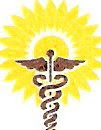All humans have a built-in "alarm system" that goes off when they feel threatened. This alarm starts physical and emotional changes that prepare us to either flee or fight the danger that triggered the alarm. In some people this alarm may go off unexpectedly, creating a very strong sense of panic and feeling threatened even when no danger is present. This "false alarm" is called a panic attack. It occurs in a condition known as panic disorder.
What is a panic attack?
A panic attack is an extremely terrifying experience. Several physical and emotional signs occur during a panic attack. The most common signs are a racing heart, shortness of breath, faintness, hot or cold flushes, trembling, tingling, weakness and nausea, or feeling as though one's self or the external world has changed somehow. In addition, people with panic attack may fear that they are dying, or going crazy, or are about to lose control. There is a sense of impending doom. The signs of panic attacks can change or stay the same from one attack to another. In other words, the intensity of the symptoms vary with each attack.
What is agoraphobia?
Panic attacks can be so frightening that some people begin to change their behavior because they are afraid of having an attack. They may avoid activities or places where escape isn't easy if a panic attack occurs. Some people may be unable to do routine activities. This pattern of fear and avoidance is called agoraphobia.
Why do panic attacks keep happening?
Once panic disorder develops, it usually becomes a daily cycle of fear. The cycle begins with advance anxiety about where, when, and how the next panic attack may occur. People with panic disorder often become aware of and worried about physical changes that might happen. This buildup of fear and anxiety often leads to the likelihood of actually having a panic attack, and for some people, a reason to avoid the situation entirely. People who have panic disorder with agoraphobia may spend a lot of time avoiding activities and places they fear might trigger a panic attack.
Do many people have panic disorder?
Yes. Research has shown that many people have at least one panic attack in their lives. Three out of every 100 people will develop panic disorder. Of those who seek treatment of panic disorder, about two thirds have also developed some degree of agoraphobia. Panic attacks can be hidden, even from doctors. People often worry about what others think. They fear that this strange experience is something that doesn't happen to other people. Panic disorder usually begins in the late teens through the mid-thirties, but can also occur in children and older adults. Two thirds of patients with panic disorder are women. The tendency to have panic attacks seems to run in families.
What else should I know about panic disorder?
As in any disease, people with panic disorder may have complications. Some people think of themselves as weak or defective because they have panic attacks. The strain that panic disorder puts on families can cause marital and family problems. In addition, about one third of people with panic disorder also have depression or problems with drugs or alcohol use. If you have panic disorder or agoraphobia, a complete physical exam is the first step. You can talk with your doctor about your panic attacks and other problems.
Is there a treatment for panic disorder?
Although panic disorder can feel terrible, it can be treated. You can take medicine or have a special type of therapy. Several medicines can help control panic attacks. Some medicines may be used for only a few weeks. Other medicines may be used for a year or longer. Therapy can also help cut the risk of relapse (having the panic attacks start again). If one is treated with medicine alone, one might start having panic attacks again when the medicine is stopped. About 80 to 90% of people who have behavioral therapy are helped, even if they don't take medicine. Your doctor can help you decide on the best treatment approach for you.
Most people do not seek treatment because their symptoms sound so bizarre that they fear no one will believe them.Remember, you are not alone.There are hundreds of people with this condition. If you have any symptoms,please consult with your health care provider.
Monday, May 3, 2010
Subscribe to:
Post Comments (Atom)




Thank you. I thought I was alone.I wish more doctors like you were there to believe people who have panic attacks. I even hid it from my husband!
ReplyDelete